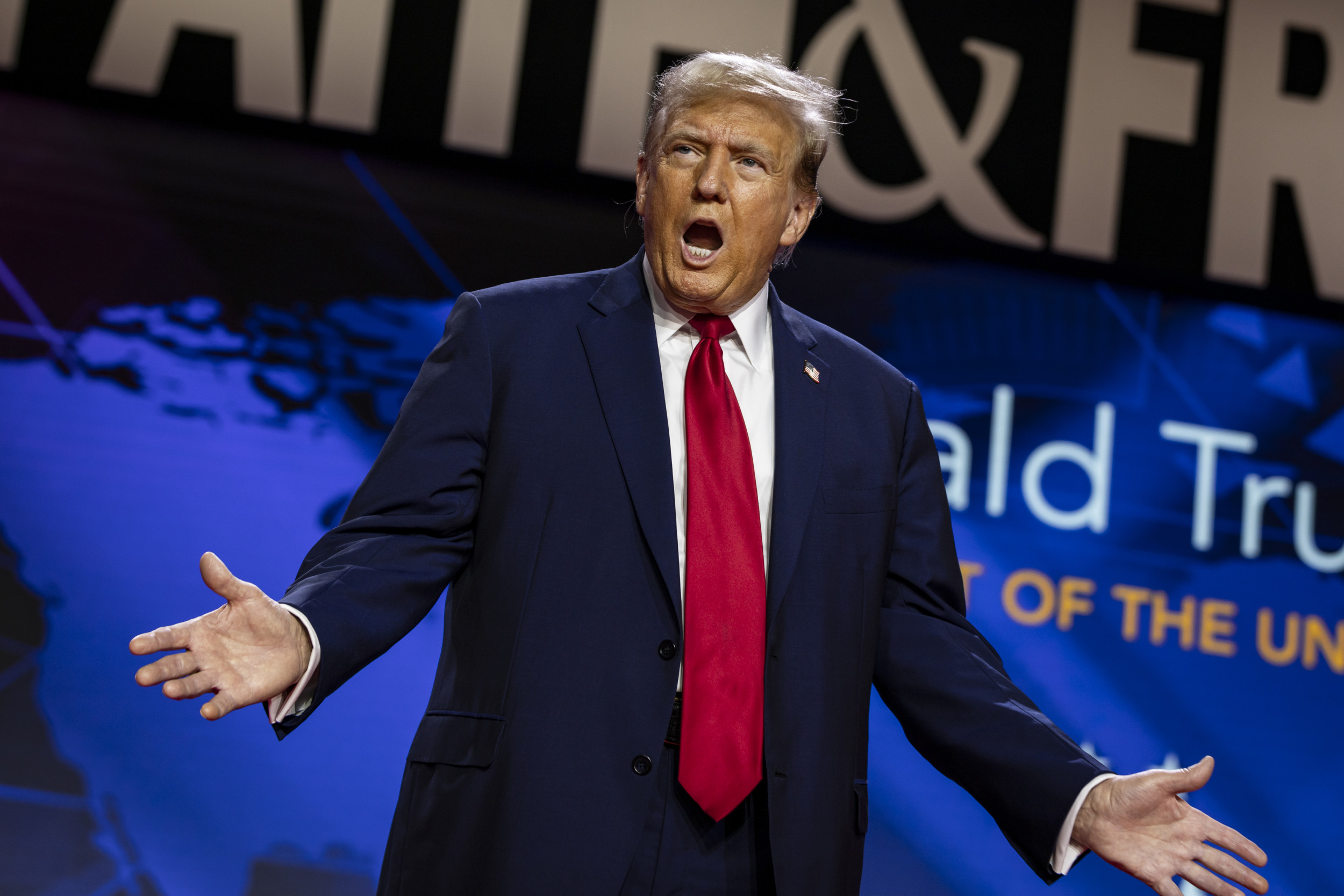As the U.S. Supreme Court prepares to issue its highly-anticipated ruling on Donald Trump‘s presidential immunity case, constitutional law expert and attorney Matthew Seligman said Saturday that regardless of the Court’s decision, the former president is likely to face trial and ultimately “lose” in his bid for immunity.
Thousands of Trump supporters stormed the U.S Capitol building on January 6, 2021, in an attempt to stop Congress from certifying Joe Biden‘s 2020 election victory. The riot erupted following claims from Trump that the election had been stolen from him via widespread voter fraud, despite there being no evidence to back up his claims.
Trump, the presumptive Republican 2024 presidential nominee, was indicted by Department of Justice (DOJ) special counsel Jack Smith in August 2023 for his alleged actions surrounding the riot. He has pleaded not guilty to charges of conspiracy to defraud the U.S., conspiracy to obstruct an official proceeding, obstruction of and attempt to obstruct an official proceeding, and conspiracy against rights.
The Supreme Court is expected to rule on Monday in a case brought by the former president about whether or not he has presidential immunity for “official acts” undertaken while in the White House.
During an interview appearance on MSNBC‘s The Katie Phang Show, Seligman, a fellow at the Constitutional Law Center at Stanford Law School, explained that while the Court is expected to acknowledge some level of presidential immunity, the scope of that protection remains uncertain.
“It’s certain that the Court will say that some presidential conduct is immune,” Seligman said. “You can’t make up a crime, for example, to veto a bill.”
However, Seligman reiterated that even if the Court grants Trump the broadest possible immunity for official acts taken during his presidency, it would not shield him from prosecution entirely.
“Even if the Court gives [former] President Trump everything that he wants, that he’s immune for every official act that he took while he was president, he’s still going to be subject to a trial,” he added.
Getty Images/Samuel Corum
The attorney pointed out that the majority of the conduct alleged in the indictment against Trump falls outside the realm of official presidential duties. “The vast majority of the conduct that’s alleged that he’s being charged with is clearly unofficial conduct,” Seligman explained. He noted that much of the alleged behavior was carried out in Trump’s capacity as a candidate attempting to overturn the results of the 2020 election, rather than as the sitting president.
Newsweek has reached out to Trump’s spokesperson on Saturday via email for comment.
In a separate opinion piece for MSNBC, Seligman further elaborated on the implications of the Court’s recent ruling in Fischer v. United States, which narrowed the scope of a charge used against many January 6 defendants. Contrary to some interpretations, Seligman argues that this ruling does not significantly benefit Trump or other Capitol riot defendants.
“The court’s interpretation actually has the potential to bolster the prosecutions both against Fischer and his ilk and against Trump,” he wrote. He explained that the Court’s middle-ground approach still covers the conduct Trump is charged with, particularly his alleged efforts to interfere with Congress’ recognition of genuine electoral certificates.
“Trump is alleged to have masterminded a scheme to interfere with Congress’ recognition of the genuine electoral certificates on Jan. 6,” Seligman added. “He without question ‘impaired the availability or integrity’ of those certificates by organizing the submission of competing fraudulent certificates and pressuring Vice President Mike Pence to ignore the real ones.”
On The Katie Phang Show, Seligman shared frustration with the delays caused by these legal proceedings, highlighting a pattern of “judicial epicycles” in Trump’s various legal cases. “We’ve now been seven months here waiting for the Supreme Court to tell us what the rule is. When no matter what the rule is, Donald Trump is going to lose,” he said.
Katie Phang, host of the self-named MSNBC show and a former prosecutor, offered additional insights into the potential aftermath of the Court’s ruling. Phang predicted that the high court would likely instruct U.S. District Judge Tanya Chutkan, who is overseeing the federal case, to determine which of Trump’s alleged acts fall under presidential powers and which are outside the scope of protection.
“I believe, as do others, that Judge Chutkan will be told she needs to make a determination as to what conduct that is alleged in the indictment is quote ‘official acts as president’ and what conduct is quote ‘unofficial acts,'” Phang said. “The unofficial acts do not get the immunity.”
Phang further suggested that Chutkan would move quickly to address these issues once the Supreme Court provides guidance. “I’m a believer and I’ve been pushing this idea you will see an evidentiary hearing that Judge Chutkan will do and I think very quickly, she’s going to put the pedal to the metal on this,” she added.
This potential evidentiary hearing could provide an opportunity for Smith to present a comprehensive overview of the case against Trump.
“You will see special counsel Jack Smith put on what I’m going to call a mini-trial through the course of the evidentiary hearing so Americans can hear what Donald Trump did,” Phang added.
Uncommon Knowledge
Newsweek is committed to challenging conventional wisdom and finding connections in the search for common ground.
Newsweek is committed to challenging conventional wisdom and finding connections in the search for common ground.
